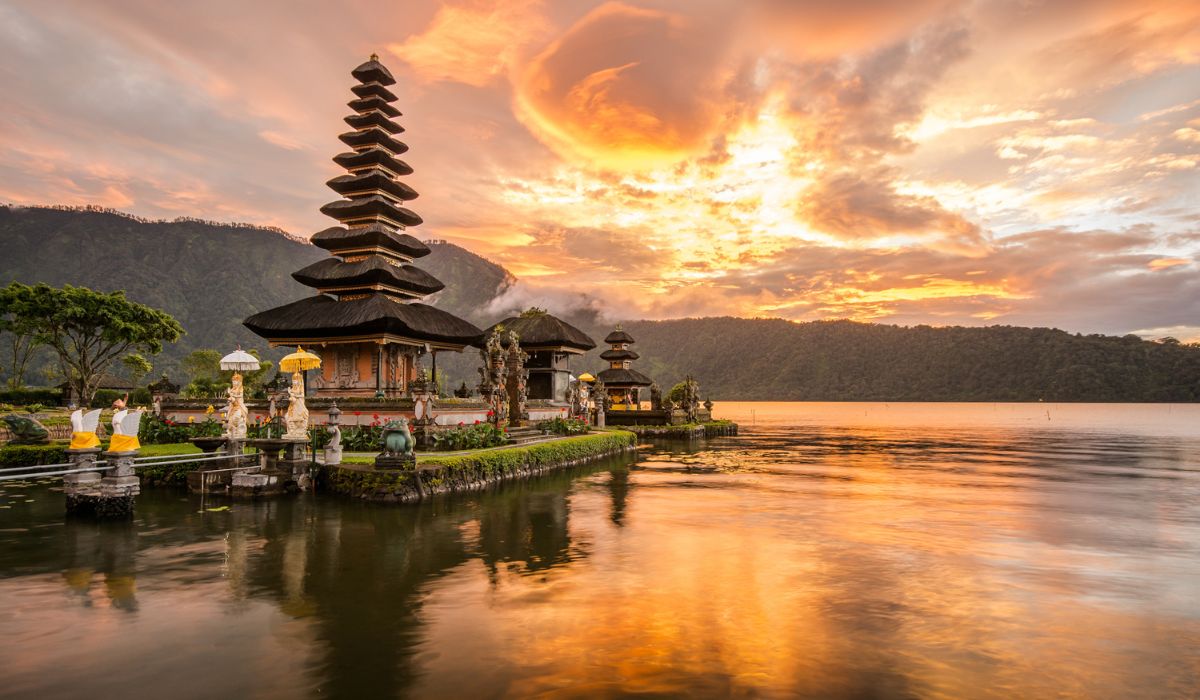
Bali Bans Tourism Activities on Mountains and Volcanoes: Exploring the Impact and Alternatives
Bali is a popular tourist destination known for its beautiful beaches, lush rice paddies, and active volcanoes. However, in a recent move, the Indonesian government has banned all tourism activities on the island’s mountains and volcanoes. This decision has been met with mixed reactions, with some people supporting the ban and others criticizing it.

Understanding Bali’s Volcanic Landscape and Tourism
Bali is located in a volcanic arc, which means that it is home to a number of active volcanoes. These volcanoes are a major tourist attraction, and people from all over the world come to Bali to climb them, hike to their summits, and take in stunning views. However, volcanoes are also a major source of pollution, and they have been linked to a number of environmental problems, including air pollution, water pollution, and soil erosion.
The Reasons behind Bali Bans Tourism Activities
The government of Bali Bans Tourism activities on the island’s mountains and volcanoes for a number of reasons. These reasons include:
- Environmental preservation: The government is concerned about the environmental impact of tourism on the island’s volcanoes. They believe that the ban will help to reduce pollution and protect the natural environment.
- Visitor safety: The government is also concerned about the safety of tourists who climb the volcanoes. There have been a number of accidents in recent years, and the government believes that the ban will help to reduce the risk of accidents.
- Cultural sensitivity: The mountains and volcanoes are sacred to the Balinese people. The government believes that the ban will help to protect the cultural significance of these sites.
The Impact on Local Economy and Communities
The Bali Bans Tourism activities on Bali’s mountains and volcanoes is having a significant impact on the local economy and communities. The tourism industry is a major source of income for Bali, and the ban has caused a number of businesses to close and people to lose their jobs. The ban is also having a negative impact on the local communities, as it is preventing people from accessing their traditional lands and resources.
Exploring Sustainable Tourism Alternatives
The government of Bali is working to develop sustainable tourism alternatives to the ban on tourism activities on the mountains and volcanoes. These alternatives include:
- Promoting cultural and heritage tourism: Bali is home to a rich culture and heritage, and the government is promoting tourism that focuses on these aspects of the island.
- Embedding ecotourism and nature conservation projects: The government is also embedding ecotourism and nature conservation projects into the tourism industry. This will help to protect the environment and provide economic opportunities for local communities.
Managing Visitor Expectations and Education
The government of Bali is also working to manage visitor expectations and educate tourists about the ban and its purpose. They are doing this through a number of initiatives, including:
- Creating awareness campaigns: The government is creating awareness campaigns to inform tourists about the ban and its purpose.
- Providing information resources: The government is providing information resources to tourists about the ban and alternative activities.
- Encouraging responsible tourism practices: The government is encouraging tourists to practice responsible tourism and to respect the local culture and environment.
Collaborative Efforts and Stakeholder Involvement
The government of Bali is working with a number of stakeholders to address the impact of the ban on tourism activities on the mountains and volcanoes. These stakeholders include:
- Local communities: The government is working with local communities to develop sustainable tourism alternatives and to mitigate the impact of the ban.
- NGOs: The government is working with NGOs to provide support to local communities and to promote responsible tourism.
- Businesses: The government is working with businesses to help them adapt to the ban and to develop sustainable tourism practices.
Balancing Conservation and Tourism Growth
The government of Bali is committed to balancing conservation and tourism growth. They believe that it is possible to develop a sustainable tourism industry that protects the environment and provides economic opportunities for local communities.
Future Outlook and Challenges
The future of tourism in Bali is uncertain. The ban on tourism activities on the mountains and volcanoes is having a significant impact on the tourism industry, and it is unclear how long the ban will last. However, the government of Bali is committed to developing a sustainable tourism industry, and they are working with a number of stakeholders to address the impact of the ban.
Conclusion
Bali Bans Tourism mountains and volcanoes is a significant development. It is having a major impact on the local economy and communities, and it is also having an impact on the future of tourism in Bali. The government of Bali is working to address the impact of the ban, and they are committed to developing a sustainable tourism industry that protects the environment and provides economic opportunities for local communities.

